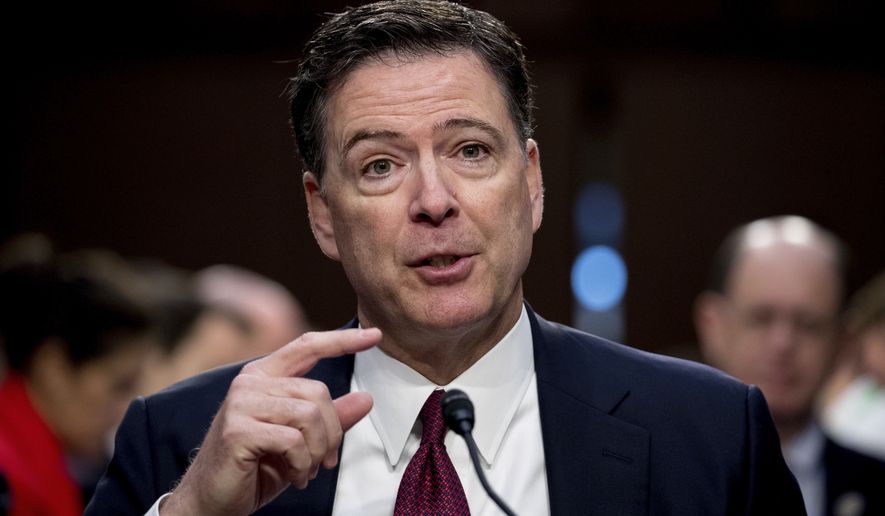Fired FBI Director James B. Comey orchestrated the leak of details from memos of his conversations with President Trump, he admitted to Congress on Thursday, saying he had hoped it would spur the Justice Department to announce an independent prosecutor to probe the Trump operation.
Mr. Comey said he used a law professor friend at Columbia University as a go-between to share information with The New York Times. He didn’t name the professor, but said he wanted to get information out after Mr. Trump took to Twitter to dispute that he had asked the FBI to let former National Security Adviser Michael Flynn off the hook.
“I asked him to, because I thought that might prompt the appointment of a special counsel. And so I asked a close friend of mine to do it,” Mr. Comey testified.
The revelation was among the most striking of the day for Mr. Comey, who spent 21/2 hours answering questions publicly to the Senate intelligence committee.
The former director said he felt compelled to take notes of his interactions with Mr. Trump because he was afraid the president would “lie” about them.
He decided to leak the contents of the memos after his firing to combat Mr. Trump’s tweet on May 12, where the president warned that Mr. Comey “better hope that there are no ’tapes’ of our conversations before he starts leaking to the press.”
Mr. Comey said he woke up in the middle of the night days later and figured he needed to get his version out.
The admission opened Mr. Comey up to attacks from Trump defenders who said it showed the former FBI director was far from a neutral investigator, and instead had been trying to shape outcomes.
Trump lawyer Marc Kasowitz said the leaks were “unauthorized disclosures” of “privileged communications” with the president.
“We will leave it to the appropriate authorities to determine whether these leaks should be investigated,” the lawyer said.
The leak admission was striking for Mr. Comey, who has in the past been critical of anonymous leaks of information the leakers weren’t authorized to share.
Sen. Roy Blunt told Mr. Comey during the hearing that his decision to leak sounded like a cop-out.
“What you do there is create a source close to the former director of the FBI, as opposed to just taking responsibility yourself,” the Missouri Republican said.
Mr. Comey, during his testimony, said he specifically wrote one of his memos in an unclassified way so it would be available to be used or discussed in any investigation.
The intelligence committee is seeking copies of the memos. Mr. Comey said he’s turned his memos to the special counsel that has since been appointed — though he said it’s possible the law professor still has copies.
• Stephen Dinan can be reached at sdinan@washingtontimes.com.




Please read our comment policy before commenting.